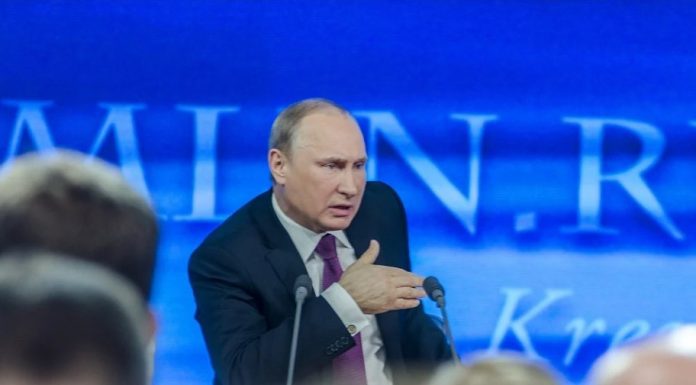The most recent edition of the international trade barrier index, an annual publication by the Tholos Foundation, featured Singapore coming out as the country with the least trade barriers. It was the opposite for nearby India which again was last in the Index for the third time in a row. In 2021, Western Europe led the world in laissez-faire trade, but this year, it had to leave this leading position to North America, partially as a result of the new digital trade restrictions rolled out by the EU.
There is more than just the new EU regulatory drive in the digital sector contributing to its trade restrictions. Covid and the war in Ukraine have been changing the consensus in Europe about trade policy. A new consensus is currently forming in Europe that the continent was excessively dependent on one particular – rather untrustworthy – energy supplier: Russia. This was reinforced by Putin himself cut off the gas to Germany in 2022, despite Germany making great efforts to exempt Russian gas imports from the sanctions.
These trade shocks in the last few years, which include tariffs from the U.S., a NATO ally, over incredulous concerns imports of steel and aluminum from the EU undermine their national security have given Brussels bureaucrats new problems to solve. Everything from chips and EVs from China, energy from Netherlands, coffee and forestry products from Asia looks like a potential national defense or climate threats that can only be resolved with a new regulations. A regulation that just so happens to limit competition with EU suppliers.
Free trader supporters may differ on the need for restrictions based on geostrategic security, they agree that these economic planning policies are primarily to blame for Europe’s excessive dependency in some areas. In particular domestic European fossil fuels production has been reduced a lot, not least with the nuclear power exits and the Netherlands phasing out its – pretty massive – gas exploration capacity on questionable grounds.
The Tholos Foundation have published their Trade Barrier Index for 2023
🏆 UK Scores 8th globally for lack of barriers to trade
🌏 7 of the top 10 are CPTPP members
🇪🇺 Report repeatedly calls out the EU for its protectionist approach and restrictions on free trade pic.twitter.com/CuQjuQjNct
— Gully Foyle #UKTrade (@TerraOrBust) May 10, 2023
Opening up trade boosts economic growth and reduces illicit trade
Despite the debate surrounding long supply chains and security, at the end of the day, global trade proves indispensable. Despite a drop, the United States continues to trade with China (while paying the higher tariffs for it). At the same time the EU’s new derisking measures appear to shield the renewables industry, yet impose requirements that demand imports from China to reach EV goals.
Globalisation and international trade are not dead, but global economic ties are being rerouted, to comply with all the politics of the day.
It is a pity to see so many untapped benefits of seriously opening up trade. One benefit is of course economic growth, but another remarkable benefit, as also highlighted by the international trade barrier index report, is that opening up trade also reduces the size of illicit trade. The report explains how trade agreements and better protection of property rights leads to less illicit trade:
“Countries that score well in trade Facilitation are able to demonstrate that data, as well as physical goods and services, can travel into, out of, and through the territory legally. The countries are able to extend property rights protections to traded goods, crucial to combating illicit trade and forms of intellectual property theft that can plague the trade facilitation environment, and, at the same time, ensure preferential market access abroad and common standards with trade partners.”
Obviously, governments can and should combat all this by cooperating intensely with the private sector, sharing intelligence, but the role of greater trade opening should not be underestimated, the index shows.
Illicit trade truly is a major problem, as it helps to finance and promote wars, terrorism, human trafficking and forced labour. An example is how illicit trade in chips, which is hard to police, given the ubiquity of semiconductors, has resulted in Western technology goods winding up in Russian missiles and Iranian drones.
China is widely regarded as a major provenance of counterfeit goods, drug trafficking, illegal wildlife trade, and forced labour. New regulations that are being issued by the EU introduces due diligence requirements for companies that are aimed at countering forced labour, specifically targeted at the treatment of the Uygur population in China. The U.S. went further. In December 2021, the U.S. Senate unanimously passed the “Uyghur Forced Labor Prevention Act”, which bans all imports from Xinjiang unless the United States can determine “clear and convincing evidence” that they are not made with forced labour.
Furthermore, there is the issue of combatting illegal deforestation. To that end, the EU has come up with laws and regulations burdening companies with the responsibility to document this in their supply chains. As opposed to the situation with the Uyghurs however, the case for this a lot less clear, as some of the countries exporting palm oil – seen by the EU as a major source of deforestation – have made great efforts themselves to improve things, leading to effective progress on the ground.
Malaysia for example issued a domestic certification scheme, the Sustainable Palm Oil (MSPO) arrangement. According to Global Forest Watch, the country has made great progress in reducing deforestation. The new scheme was combined with new policies to counter illegal logging. The EU however refuses to recognise all of this as sufficient, and imposes its own bureaucratic requirements instead. That’s unlike the UK, which recognizes the MSPO. The episode has led to both South East Asian nations freezing trade talks with the EU in June 2023. Pamela Coke-Hamilton, executive director of the ITC, a joint agency of the UN and World Trade Organization, recently warned that these new EU deforestation rules risk a ‘catastrophic’ impact on global trade, as smaller suppliers in particular risk to be “cut off” from trade flows.
Conclusion
By overburdening its trade flows with protectionist regulations great trade opportunities are being foregone by the EU. Case in point, the South American MERCOSUR bloc has resorted to sending an ultimatum to the EU, sign their trade deal that is loaded with environmental assurances or they will sign trade deals with China that have none, the deadline is early December. The EU can be a powerful player in reducing the evils of illicit trade by engaging in more trade only if it can steer clear of one-sided regulatory policy that brings trade partners together in cooperation.
It is now time to change course, also not to witness increased illegal trade flows that ultimately undermine investment and increase corruption.
An unintended consequence of the current brash regulatory approach that upsets trading partner is that the EU ends up complicating the fight against illegal wildlife and forestry trade by promoting policy that restricts suppliers from outside the EU or has lax enforcement in other areas such as limiting counterfeits. Rather, often a dose of natural competition from opening up markets is often the cure for shady business operators, as it takes away their comparative advantage of ignoring regulations and bureaucracy. Sunlight is the best disinfectant













